#religion of terrorism
Text
By: Pamels Paresky
Published: Mar 12, 2024
When Israelis speak about Oct. 7, they frequently say “there are no words.” But one word they consistently use is “shattered.”
Israeli psychologists have been treating severe trauma, complex trauma and collective trauma. The word “trauma,” however, fails to convey the scale, the savagery or the sadism of events that day. The term does not encompass the complex mix of disorientation, anguish, emotional overload and the experience of utter brokenness after the deadliest day for Jews since the Holocaust.
There is no word for the shock felt by Jews around the world when Israel was suddenly and without warning attacked by thousands of rockets targeting civilians from the north to the south and from the river to the sea. There is no word to describe what it is like to be a Jew kidnapped by terrorists indoctrinated since early childhood to believe that murdering Jews is rewarded in the afterlife. Or to know that the people you love are in the hands of terrorists who delight in rape, torture and slaughter; who enjoy forcing parents and children to watch as they inflict horrors on loved ones.
There is no word to convey the terrifying ordeal suffered by survivors of the attempted genocide that Hamas perpetrated on Oct. 7. There is no word that communicates the panic, betrayal, horror and distress of those who hid for hours waiting for help to come, reading WhatsApp messages about terrorists inside their neighbors’ houses. Hearing terrorists break into their own homes. Hearing the screams of injured and dying friends and relatives. Hearing sounds of gunfire and exploding RPGs punctuated by ecstatic shouts of “Allahu Akbar.” All the while knowing they were being hunted.
Everyone in Israel is just one or two degrees of separation from someone who was murdered, injured or kidnapped on Oct. 7. And everyone knows someone who sped to the rescue that day, many of whom never returned.
There is no word to describe the grief of a country still holding its breath while more than a hundred hostages remain in Gaza, and while hundreds of thousands of soldiers, many in their teens and early 20s, go to battle. Some returning badly injured. Some returning to be buried.
Israel, which in the 20th century absorbed hundreds of thousands of displaced Holocaust survivors as well as nearly 900,000 Jewish refugees fleeing antisemitism and violence in neighboring Arab countries, is now temporarily housing about 200,000 displaced Israelis — refugees in their own country — some in hotels and even dormitories.
This includes not only those evacuated from areas near the Gaza border, but also from the north, as confrontations with terrorists in Lebanon escalate. Many displaced families are unsure how long it will take before they can return home. Some refugees from the south have already returned. Some don’t have homes to return to. Some don’t know if they want to return.
There is no word in the psychological lexicon for what happened on Oct. 7 or the new world in which Israelis now live. But “shattered” comes closer than “trauma.”
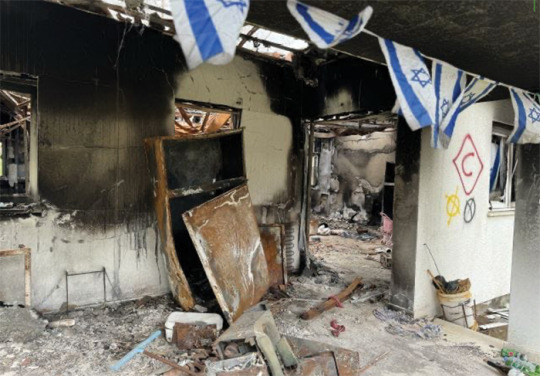
A Shattered Paradigm
Jews are the only indigenous people who lived in one region for thousands of years, and then, when the majority were dispersed across the globe to be a tiny minority wherever they lived, managed to retain the same religion, rituals, language and attachment to their ancient land for 2,000 years — even as they believed themselves to be full members of their new host countries.
But Jews have also been unable to spend even one century without being ethnically cleansed, violently persecuted or massacred somewhere — whether in the Diaspora or the land of Israel. And since the newest iteration of Jewish control of the land in 1948, Israelis have existed under a threat to which there has been no real solution.
During the Second Intifada, roughly 1,000 Israelis were killed by Palestinian terrorists. There were stabbings, shootings, suicide bombings and beginning in 2001, mortar and rocket attacks launched from Gaza. In response, Israel increased security. Terrorists from the Palestinian Territories became less able to penetrate Israel’s borders and the number of injuries and deaths decreased. And of course, from the time they are little, Israeli children are aware that they will be required to serve in the Israel Defense Forces (IDF).
One of the most surprising things I learned during my time in Israel is that for decades, new parents have believed — or at least hoped hard enough to almost believe — that by the time their children are old enough to serve, defending the country from terrorism will no longer be necessary.
Gaza: “Land For Peace”
Gaza was home to Jews for over 2,000 years, beginning in at least the second century BCE and ending in 1929, when Arabs in the region once known as Judea killed more than 65 Jews in Hebron and around 135 Jews in Gaza. These pogroms came after a decade of similar antisemitic violence in the British Mandate of Palestine. A British commission referred to the pogroms as “racial animosity on the part of the Arabs.”
In part to protect Jews and in part to appease the forebears of the Arabs who in the 1960s would come to be called Palestinians, British colonial forces expelled the Jews from Hebron and Gaza, and restricted Jewish immigration to the region.
After the Six-Day War in 1967, Jews returned to live in Gaza. In 2005, in the hope of securing both peace and international goodwill, the Israeli government led by Prime Minister Ariel Sharon unilaterally withdrew its forces from Gaza and forcibly removed the 9,000-plus Jews who lived there, as well as disinterring those buried in Gaza.
Referencing the long history of Jewish expulsions by colonial forces and antisemitic governments, Gazan Jews’ protest slogan was “Jews don’t expel Jews.” The IDF physically carried many of them out of their homes and across the newly designated border.
Hours after the finalization of the historic 2005 withdrawal, Palestinian terrorists in Gaza fired rockets at Israeli civilians. In 2007, the year Hamas took over as Gaza’s government and murdered its political rivals, terrorists in Gaza launched more than 2,800 rockets and mortars at Israel. By then, the staunch international support for demolishing Gaza’s terrorist infrastructure, which Sharon expected would last a decade, had already evaporated.
Instead, between then and Oct. 7, with backing from Iran along with appropriated international aid controlled by UNRWA, the United Nations Relief and Works Agency (which has been revealed to be both a terrorist-training system and an internationally funded source of income for Hamas terrorists and supporters), Hamas significantly expanded its terrorist capabilities and vastly increased its stockpile of weapons.
Without the international support necessary to destroy Gaza’s terrorist capabilities, in order to keep Israelis safe, Israel had to rely on defensive strategies. Israelis’ famous technological ingenuity resulted in an increasingly sophisticated rocket-alert system that now includes smartphone apps, and the “Iron Dome,” a highly advanced technological system that intercepts terrorists’ rockets, neutralizing the vast majority that don’t fall within Gaza.
Nonetheless, bomb shelters are still necessary. They appeared across Israel’s roadways as well as in Israeli homes and businesses. The fortified room in a home is called a “mamad,” an acronym for “merkhav mugan dirati” which means “apartment protected space.” The door to a mamad doesn’t lock. If a home is damaged, first responders need to be able to open it in order to extract the people inside.
Life in Israel, and especially the otef (the Gaza envelope), can be hard for those outside of Israel to truly grasp. Imagine needing constant protection from terrorist rocket attacks, and trying to prevent your children from developing anxiety, panic disorders and PTSD. Israel’s creative solution was to turn children’s bedrooms into bomb shelters. In newer homes, when rocket attacks happen at night, instead of awakening children to take them to a shelter, Israeli parents calmly visit their children’s bedrooms until the danger has passed. Sometimes children don’t even wake up.
This all had the effect of transforming something life-threatening into something more like a nuisance. On Jan. 29, I experienced this myself when air raid sirens sounded in Tel Aviv and my cell phone app blasted a “critical alert.” Hamas rockets aimed at the city came close enough that from the bomb shelter, I could hear them exploding when Iron Dome missiles destroyed them in the air.
In a tacit contract between Israeli citizens and their government, Israelis have come to tolerate a certain level of antisemitic terrorist violence as the price of Jewish self-determination in the historical, biblical, and continuous homeland of the Jews. In return, Israeli homes — or at least, the mamads — were thought to be as safe as if covered by an iron dome.
On Oct. 7, that contract was shattered.
The Kibbutzim
Early in the morning, Hamas began their barbaric rampage. Thousands of rockets were launched from Gaza at civilian targets across the country, and Israelis took refuge in their mamads as they always do.
They soon understood that it was not a “normal” rocket attack — the alerts didn’t stop when they usually do. But they could not have imagined that at that moment, thousands of terrorists were breaking through the border wall and invading their country, intending to murder, rape, dismember and kidnap as many Israelis as possible. Or that terrorists knew exactly where to find them. Or that their “safe rooms” would become death traps.
Entire families were gunned down in their children’s bedrooms. Or they died from smoke inhalation. Or they were burned alive when terrorists set fire to their homes. In many cases, terrorists shot their victims through mamad doors as Israelis tried desperately to hold them shut.

That is how 18-year-old Maayan Idan was murdered in front of her family as her father, Tsachi, held the door closed. Terrorists livestreamed the family’s ordeal on Facebook as Maayan’s parents and young siblings tried to process what was happening.
Tsachi was kidnapped from Kibbutz Nahal Oz and is still a hostage in Gaza. At Maayan’s funeral, her mother, Gali, described being “shattered into pieces.”
Sixty-nine-year-old Itzik Elgarat was shot in the hand through his mamad’s door. He called his brother, Danny, who thought the handle had somehow injured Itzik and told him how to create a tourniquet. Just before the call was disconnected, Itzik became hysterical. “Danny! This is the end!” he said. “This is the end!”
Not understanding what “end” it could be, Danny called a relative who lived in the same kibbutz, asking him to check on Itzik. His relative told him the kibbutz had been overtaken by terrorists. As one of the few residents with a weapon handy, he had killed two terrorists in his own home. Danny then opened his phone tracking app and watched as Itzik’s phone entered Gaza.
Danny’s sister lived in the same kibbutz. She spent seven hours holding her door handle in the closed position, saving the lives of the two grandchildren who were with her. Terrorists kidnapped her ex-husband, Alex Dancyg, a 76-year-old world-renowned scholar of the Holocaust and Polish Jewish history, and the son and brother of Holocaust survivors. He has trained Israel’s Auschwitz guides for over 30 years, and is a beloved fixture at Yad Vashem, Israel’s memorial museum of the Holocaust.
According to released hostage Nili Margalit, for at least the first 50 days, Hamas held her and Dancyg and others from Nir Oz, most of them elderly, deep in a tunnel.l. To keep their minds active, they took turns giving talks about their areas of expertise. When Dancyg lectured about the Holocaust, the others asked him to speak about something else.
Margalit, Dancyg and Elgarat were kidnapped from Kibbutz Nir Oz, where 46 residents were murdered. By the time the IDF arrived, the terrorists were gone and had kidnapped approximately 80 people — about a third of all the hostages. About one quarter of their close-knit community was either kidnapped or murdered.
Thirty people from Nir Oz are still held hostage in Gaza, including Dancyg and his brother-in-law Elgarat. Also kidnapped were Elgarat’s next-door neighbors: Four-year-old Ariel Bibas, his 9-month-old brother, Kfir (who, if alive, spent his first birthday as a hostage), their mother, Shiri, and father, Yarden, who was taken separately after trying to protect his family. Images (shot by a Palestinian “civilian” who works as a photographer for the Associated Press) show Yarden being kidnapped on a motorcycle, blood gushing from his head; a terrorist with a hammer in one hand, holding Yarden by the throat. Hamas streamed the kidnapping of Shiri and her boys, all of them wrapped in a blanket. A screenshot of the terrified mother and her red-headed babies has become an iconic image of the Oct. 7 kidnappings.
About 100 residents of the larger Kibbutz Be’eri were also murdered that day, and about 30 kidnapped — together, 10% of that community. Among the kidnapped were Emily Hand, who spent her ninth birthday as a hostage. She was at a sleepover with her friend, Hila Rotem, when terrorists invaded the kibbutz.
After her release, Emily revealed that in Gaza, she, Hila and Hila’s mother, Raya, had been held not in tunnels, but in homes. For at least part of the time, she was with Be’eri resident Yossi Sharabi whose brother, Eli, was also taken hostage. Yossi’s wife and three daughters survived the massacre, but terrorists killed Yossi in Gaza, where Eli remains a hostage. Eli’s wife and two daughters were murdered. Yossi and Eli’s brother, Sharon, says his family is “shattered.”
The Nova Festival
Hamas terrorists who invaded Israel on motorized paragliders swarmed the Nova “peace rave” at a campground near Kibbutz Re’im. (Re’im means “friends.”) With assault weapons, grenades and RPGs, terrorists mowed down hundreds of partygoers who fled on foot and by car, many of which were incinerated. Of between 3,000 and 4,000 attendees, 364 were murdered and many more were injured. Forty from the festival were reportedly taken hostage.
Ayala Avraham and her husband, Ilan, although in their 50s, were regulars at trance music festivals, dancing together every weekend. Ilan frantically drove Ayala and a friend away from the Nova grounds while terrorists shot at them, hitting the car. The three made it to Moshav Yakhini, a small community near Sderot, where they hid in a standalone bomb shelter behind a security gate.
When Ilan realized terrorists were approaching, he gave Ayala the car keys, hugged and kissed her, and said “You will be okay.” Then he stood outside the shelter to distract the approaching terrorists, hoping they would not look inside. Several terrorists grabbed Ilan and absconded with him.
Other terrorists soon discovered the women, but left only one to guard them. The women broke free from their captor, who shot at them, wounding Ayala’s friend as they ran to hide behind her car. They were not well hidden. If he had come after them, they would have had no chance. But for whatever reason, he ran back toward the other terrorists. The women were soon rescued by the IDF.
For three weeks, Ilan, who wore dreadlocks, was thought to be missing. Eventually, his unusual hairstyle allowed him to be identified — terrorists had completely mutilated his face. It was later revealed that he had refused his captors’ demands to knock on doors and tell people in Hebrew that it was safe to come out of their homes.
Meanwhile, near the festival grounds, in tiny roadside bomb shelters, each built to accommodate 10, dozens of terrified festival-goers huddled together as terrorists sprayed them with gunfire and threw in grenades. In one shelter, a 22-year-old unarmed off-duty soldier, Staff Sgt. Aner Elyakim Shapira, caught seven grenades and threw them back out. The eighth grenade killed him.
Some survivors of the blast were kidnapped, including Aner’s close friend, Hersh Goldberg-Polin, an Israeli-American whose left arm was blown off below the elbow. His fate is unknown. In the shelters and elsewhere, many young people survived the massacre by hiding under the bodies of their friends and others.

As of this writing, 144 of those kidnapped have been released or rescued and 134 are still held hostage in Gaza. Reports indicate that as many as 50 of those in Gaza may now be dead.
Sexual Violence
Survivors who witnessed gang-rapes describe terrorists mutilating women before murdering them. In at least one account, a terrorist shot a woman in the head, killing her while still raping her. Hamas later denied the rapes, but manuals recovered from Hamas terrorists included a list of Hebrew phrases for communicating with Israelis — including “take your pants off.” And when interrogated, terrorists admitted to the raping of even dead bodies, saying that despite religious prohibitions on mistreating or killing women and children, Hamas leaders instructed them to murder entire families and permitted them to perpetrate rape.
In testimony delivered at the United Nations headquarters in New York, first-responders and those tasked with handling women’s dead bodies reported that many of the murdered were found partially naked; some with broken pelvises, some with grotesque injuries to their genitals. The Association of Rape Crisis Centers in Israel recently issued a report revealing that terrorists inserted nails, grenades and knives in Israeli women’s vaginas. The report detailed evidence that the sexual violence perpetrated by Hamas on Oct. 7 was intentional, “systematic, targeted sexual abuse.”
Meanwhile, many women’s organizations around the world have remained silent. Those that eventually condemned Hamas did so only many weeks later. Some have even denied the sexual violence. The director of the University of Alberta Sexual Assault Centre signed an open letter that referred to Hamas terrorists as “Palestinian resistance,” called Israel “terrorist,” claimed that false reports about the Al-Ahli Hospital bombing were accurate, and asserted that testimony about Hamas rapes amounted to no more than “unverified accusations.”
Such appalling hypocrisy notwithstanding, a recent United Nations report noted a pattern among the murdered — mostly women — who were found naked, at least from the waist down, with their hands tied. This and other evidence, along with witness testimony, provides what the report called “reasonable grounds to believe that conflict-related sexual violence occurred during the Oct. 7 attacks in multiple locations across Gaza periphery, including rape and gang rape.”
Regarding hostages, the report is equally unsettling. “The mission team found clear and convincing information that some have been subjected to various forms of conflict-related sexual violence including rape and sexualized torture and sexualized cruel, inhuman and degrading treatment. The team also has “reasonable grounds to believe that such violence may be ongoing.”
Antisemitism and Shattered Illusions
If Jews in the Diaspora thought the events of Oct. 7 would turn the tide against anti-Zionist antisemitism, it took only one day to disabuse them. On Oct. 8, while Israel was still collecting bodies and eliminating terrorists within its own borders, more than 30 student groups at Harvard issued a joint statement declaring that “the Israel regime” was “entirely responsible for all the unfolding violence.” Across the country, identical posters advertising a “Day of Resistance” appeared, prominently displaying an image of a terrorist flying a motorized paraglider.
Despite such dispositive evidence to the contrary, on March 1, a New York Times news article (not an opinion piece) reported that this campus movement “began as general protests against continuing Israeli retaliation” (emphasis added).
Even as the depth of Hamas depravity and brutality is revealed, students, faculty and other illiberal activists continue to assert that what happened on Oct. 7 was not terrorism — it was “resistance.” And resistance, they insist, is justified “by any means necessary.” Hamas is an Arabic acronym for Islamic “Resistance” Movement.
A favorite campus chant, “From the river to the sea, Palestine will be free” is a Hamas slogan — a call to annihilate the Jewish state, which is bordered by the Jordan River and the Mediterranean Sea. Some demonstrators prefer the Arabic version, which is more explicit: “From water to water, Palestine is Arab.”
By “Palestine,” they mean Israel.
Some protesters may not understand which river or what sea. But other slogans are less ambiguous: It’s difficult to see how “Globalize the intifada” and “There is only one solution, intifada revolution” are calls for peace rather than for violent attacks on Jews everywhere. If all that weren’t enough, many of the increasingly disruptive and even violent demonstrations in the United States incorporate the word “flood,” reflecting the name Hamas gave their Oct. 7 sadistic orgy of atrocities: Operation Al Aqsa Flood.
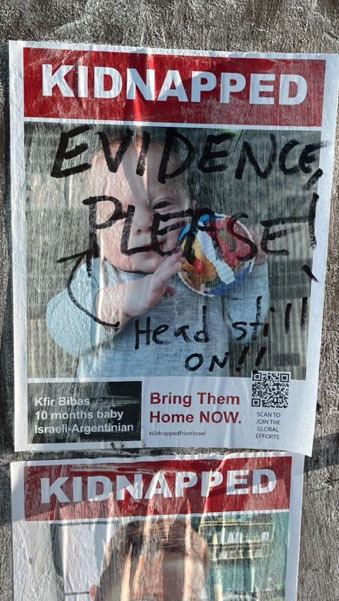
In a particularly cruel example of global anti-Zionist antisemitism, when posters of kidnapped Israelis appeared, they were quickly vandalized or torn down. At Harvard, a photo of baby Kfir was defaced with the words “evidence please” and “head still on.” On a picture of 4-year-old Ariel, graffiti read “google dancing Israelis,” a reference to an antisemitic conspiracy theory that Israel was behind the 9/11 attacks on the Twin Towers. And many of the faces of other kidnapped Israelis were obscured with red paint on a multi-part display.
After more than 150 days, anti-Israel rallies have continued on- and off-campuses across America. As hostages languish in tunnels and in the homes of terrorist-captors (some of whom, like an UNRWA employee and a physician, have been referred to in the media as “civilians”), many demonstrations include calls for a one-sided Israeli “ceasefire” with no calls for Hamas to surrender — nor even release the hostages.
The Oakland, CA City Council even voted down a condemnation of Hamas when passing a ceasefire resolution. Oakland residents argued that “the notion that this was a massacre of Jews is a fabricated narrative,” “Israel murdered their own people on Oct. 7,” and “Hamas isn’t a terrorist organization.” One went as far as to say, “I support the right of Palestinians to resist occupation including through Hamas.”
In other words: It didn’t happen. But if it happened, the Jews did it. And anyway, they deserved it.
Meanwhile, video footage taken from a camera in Rafah on Oct. 7 was released in February, showing Shiri Bibas and her two young boys with six terrorists in civilian clothing. On Feb. 12, the IDF pulled off a spectacular rescue of two hostages held in a private home in Rafah. Days later, students at Columbia University held an “all eyes on Rafah” rally. The demonstration was not to celebrate the daring commando rescue. Nor was it to demand the release of other hostages held in Rafah.
It was organized by two anti-Israel campus groups, Students for Justice in Palestine and Columbia University Apartheid Divest, to protest “Israel’s recent attacks on the city of Rafah.” The groups instructed members to obscure their faces with masks “for security.” During the rally, someone broke the glass in a door to the library.
Shattered Hopes for Peace
Though well aware of Hamas’ murderous intentions, many who lived near the border believed there was a bright line between Palestinian civilians and their violently oppressive, terrorist government. Residents of Kibbutz Nir Oz like survivor Irit Lahav, and of Kibbutz Be’eri, like Vivian Silver, who was one of the founders of the organization “Women Wage Peace,” devoted time to driving Palestinians from the Gaza border to hospitals in Israel, where they received the same, high-quality medical care available to Israelis. For over a month, Silver was thought to be among the kidnapped, since no body was found in her house. Eventually, however, her remains, found in the debris of her badly burned home, were identified using techniques borrowed from archeology.
In recent years, Hamas developed a penchant for using kites and balloons to launch Molotov cocktails and other incendiary devices into Israel, often killing wildlife and damaging agriculture. Some airborne packages carried brightly colored toys in order to appeal to children, and if all went as planned, blow them up as they reached for the toys. In spite of this, every year, members of the kibbutzim near the border would fly kites bearing messages of peace, signaling their hopes for the future to their neighbors across the border.
Saturday, Oct. 7 was supposed to be that day.
For the last 15 years, the “Kites for Freedom” celebration in Kibbutz Kfar Aza was organized by Aviv Kutz. On Oct. 7, Aviv, his wife and their three children were slaughtered by terrorists.
Margalit, a pediatric nurse who worked primarily with Arab-speaking patients at Soroka Hospital in Be’er Sheva, had planned to fly kites for peace that day. Instead, she was kidnapped from Kibbutz Nir Oz and spent 54 days as a hostage. Her father was murdered at Nir Oz and his body taken to Gaza.
For 12 hours, in the same kibbutz, Natali Yohanan and her family hid in their mamad, listening as Palestinian “civilians,” including a woman, rummaged through their belongings, and when they tired of trying to get the family out of the mamad, heated and ate the food Natali had left on the stove, and even switched Netflix to Arabic to watch some shows before finally leaving with their booty. Once the family emerged, they found that the looters had stolen everything from electronics, to Natali’s jewelry and makeup, to the family’s clothing — even Natali’s underwear.
In the aftermath of the massacres, residents of several kibbutzim were shattered to learn that Palestinians they had employed created maps of their communities for the terrorists, detailing the locations of their armories, the names of the residents, and even which homes belonged to members of security teams — the first to be murdered.
“Are these the people I wanted to help? These are people who want peace?” Irit Lahav now asks herself. She was equally astonished that after murdering her neighbors, terrorists took their dead bodies into Gaza — and sometimes only their heads. “What kind of human being would want to take somebody’s head …?”
After the beheading of 19-year-old soldier Adir Tahar was recorded on video, a terrorist in Gaza tried to sell Adir’s head for $10,000. The boy’s father was finally able to complete his son’s burial after the IDF found the head in a duffel bag — in an ice cream store freezer in Gaza.
A poll by The Palestinian Center for Policy Survey and Research found that more than 50% of Palestinians in Gaza and 85% in the West Bank support the Oct. 7 attacks. Most claim to not have seen videos of the atrocities and say they do not believe they happened.
Still, the Palestinian Authority (PA), which governs the West Bank, pays a monthly stipend to terrorists who slaughter Jews, and the pay scale is based on how many Israelis they murder. According to news reports, the PA recently added 661 of the Oct. 7 terrorists to the payroll, increasing last year’s $161,000,000 payments for murdering Israelis by $16,000,000.
These “pay for slay” incentives are enshrined in Palestinian law.
“This is outrageous,” Adele Raemer, who survived the massacre at Kibbutz Nirim, told the Jewish News Syndicate. “We teach our children coexistence while our neighbors make a living off our deaths.”
There are many stories of heroic Arab Israelis who saved lives that day—including four who spent hours rescuing dozens of people on their way to save a cousin, and Youssef Ziadna, a bus driver who drove straight into the massacre to help, rescuing 30 Jews, many of them wounded, even as he was constantly under fire. After news of his courage and selflessness went viral on social media, he received a death threat from someone who claimed to be from Gaza. “You saved 30 Jews’ lives,” the man said, adding, “Don’t worry, we’ll get to you.” Ziadna’s cousin was murdered, and four other family members were kidnapped. Only the two teenage family members were released.
I’ve heard stories of Palestinians with work permits who immediately went to authorities on October 7 when they realized what was happening. But it is currently unknown how many of the roughly 150,000 Palestinians who legally worked in Israel (including 18,000 from Gaza) participated in the attacks or aided terrorists. It is also unclear how many would participate in or aid future attacks if given the opportunity.
Those permits have been suspended indefinitely.
Taher El-Nounou, a Hamas media adviser, told The New York Times, “I hope that the state of war with Israel will become permanent on all the borders.”
Hamas abhors the democratic and Jewish values that allow equal rights for all regardless of sex, ethnicity, religion, sexual orientation … etc. Their intention, which is shared by other Islamist terrorist groups like Hezbollah, the Houthis and Iran, is to conquer the West and establish a global caliphate. Israel is just the beginning.
Israeli Anti-fragility
The red anemones, which have come to symbolize Israel’s south, are now in bloom. Seeing them after everything that happened is hard, Vered Libstein of Kibbutz Kfar Aza told The Times of Israel. Almost 20 years ago, she and her husband, Ofir, founded the annual festival known as Darom Adom (Red South). Annually, more than 400,000 visitors would come to see the red blossoms, celebrate nature and enjoy the many family-friendly events.
On Oct. 7, Ofir was among the 62 residents murdered at Kfar Aza. Their 19-year-old son was also murdered, as were Vered’s mother and nephew — who jumped on a grenade, saving his fiancée’s life. Nineteen from their kibbutz were taken hostage. “Life is stronger than everything,” Vered insists, with typical Israeli resilience, adding, “We’ll need to find the strength to renew ourselves as well.”
Whether observant or secular, conservative or progressive, soldier or survivor, one thing I hear is a fierce determination not to let terrorists rob Israelis of more than what’s already been taken. “It’s the first and last time I’m ever leaving,” the owner of a shawarma spot near the Gaza border told American journalist Nancy Rommelmann. He and his wife have returned and reopened their store. “I won’t let Hamas win” he says.
Still, the country’s economy has been significantly disrupted. Not only are more than 150,000 Palestinian employees no longer working in Israel, until recently, more than 350,000 reservists across all business sectors were serving in the IDF instead of going to work as usual. (Now the number is roughly 130,000.) At the same time, tourism, which had only been back in business for less than two years since COVID, has nearly ground to a halt.
To make matters worse, many of Israel’s farms are in areas that have been evacuated. The kibbutzim that terrorists attacked provided close to 60% of Israel’s produce, and operated dairy farms, hen houses, and cattle ranches.
Many of the kibbutzim employed people from Thailand. At Kibbutz Nir Oz alone, 11 Thai employees were murdered, five were kidnapped, and only two have been released. But farm workers from Thailand are beginning to return. And there is a fairly steady stream of mostly (but not entirely) Jewish volunteers from other countries coming to Israel to pick avocados and citrus fruits, package food and undertake various other tasks disrupted by the war. Some visitors are here to console grieving friends and family. Others are here to participate in solidarity missions.
Still others, such as investors in OurCrowd, an Israeli startup investing platform, come looking for opportunities to donate or invest. The shekel has already rebounded to pre-war levels, and if history is any guide, now is the time to invest in Israel. Between 2008 and 2021, in the aftermath of each Hamas attack and IDF response, the Israeli stock market quickly not only rebounded, but surpassed pre-conflict levels. That may be why OurCrowd was able to raise and commit the financing for its Israel Resilience Fund in record time. It may also be why international investors have been investing in the Tel Aviv Stock Exchange — including billionaire Bill Ackman and his wife, Neri Oxman. But perhaps most emblematic of Israel’s anti-fragility: When everything was shattering and reservists were called to serve, 150% of the number summoned reported for duty. And despite the political fractures of 2023, this war’s young soldiers are proving to be Israel’s new “Greatest Generation.”
Meanwhile, the ethically illiterate and morally corrupt have joined forces to accuse Israel of genocide, an obscene blood libel designed to delegitimize Israel’s war to defeat an internationally designated terrorist organization — one that attempted an actual genocide of Jews on Oct. 7.
This type of Holocaust inversion, a central feature of contemporary antisemitism, codes empowered and self-determined Jews as “Zionists,” and casts Zionists as Nazis. This is how, on the day after Hamas circulated a video claiming to have murdered seven of the hostages, film director Jonathan Glazer, who says he is a Jew, can use an Oscars acceptance speech for “The Zone of Interest,” a movie about the Holocaust, to claim that the “occupation” has “hijacked the Holocaust” and that this “occupation” — rather than sadistic, genocidal terrorism — is to blame for “conflict” and by extension, for “the ongoing attack in Gaza” and even for the suffering of “the victims of October 7 in Israel.”
In other words: Whatever happened to Jews is their own damn fault.
Only in an upside-down world can a man who made a movie about the dehumanization and genocide of Jews make a speech dehumanizing both the victims of the largest massacre of Jews since the Holocaust and Jews now risking their lives to ensure that the latest attempted genocide fails. In this inversion, the lesson of the Holocaust is not the imperative to clearly identify and marginalize those who disseminate and act on hate. And it is not the moral obligation to stand against evil. It is a moral indictment of Jews, whose stubborn refusal to be annihilated and creative ability to overcome even genocide only serve to increase the believability of conspiracy theories that paint the Jew — and the Jew among the nations — as the powerful villain.
The truth is much simpler. Throughout history, as a small minority group, when Jews in the Diaspora were violently attacked, they fled. With an army of Israelis, however, Jews have been able to fight back. Israel’s Special Envoy on Combating Antisemitism, Michal Cotler-Wunsh, told an assembly at the United Nations that people outside of Israel still make the mistake of thinking Israel exists because the Holocaust happened. The truth, she says, is precisely the reverse: The Holocaust happened because Israel did not exist. With global antisemitism at record levels, Jews around the world are awakening to this reality.
Naomi Petel survived the massacre at Kibbutz Nahal Oz with her husband and their three young children because a terrorist’s bullet jammed the lock on her front door, making it inoperable, and looters in the other half of her duplex caused a flood, preventing the house from burning when terrorists tried to set it on fire. Even after their ordeal, she told me, there’s nowhere else she wants to live. Israel’s south is her home. Her family, along with most of their displaced kibbutz, are temporarily living in the north. They don’t know how long it will take before they can go back home. She and her husband now have red anemone tattoos.
On the “Walk-Ins Welcome” podcast, she told writer Bridget Phetasy, “What Jews have done throughout history is be kicked out, try to make it again in a different place … contribute as much as you can to society, and [hope that] maybe they’ll like us enough that they don’t try to kill us.” Over and over. Again and again.
“This time,” she said, “we’re not going anywhere.”
#Pamela Paresky#Israel#hamas terrorism#hamas#hamas supporters#terrorism supporters#pro palestine#pro hamas#October 7#oct 7#october 7 attacks#antisemitism#hamas rapes#hamas attack#islamic terrorism#religion of terrorism#islam#palestine#hamas atrocities#religion is a mental illness#Am Yisrael Chai#eretz yisrael
46 notes
·
View notes
Text
Principles that so-called "leftists" have abandoned since October 7th
Being against religious fundamentalism: You guys used to think that fundamentalism was a bad thing. Don't get me wrong, you still believe that OTHER religions that are fundamentalist are bad, but Muslim right wing religious fundamentalism is very much okay with you. When you express support for religious fundamentalist groups like Hamas, Hezbollah, or the Islamic Republic, you are supporting suppression against women, LGBT people, and Jews (though the latter doesn't bother you at all). These are not resistance groups, they are terror groups.
Anti-racism: Mocking Israeli accents is suddenly funny to you. Jews aren't oppressed any more and antisemitism isn't as important as other forms of ethnic hate. It's okay to discriminate against people based on where they're from (the treatment of twenty year old Eden Golan is a particularly disgusting example). Indigeneity expires if you're Jewish. You support land back efforts for everyone but Jews. You employ the noble savage stereotype against Palestinians, because "That's just their way!" Holocaust inversion and even denial? NBD. Jews are trying to take over the world and are bloodthirsty monsters who support genocide. And the blatant tokenization is horrific. Some of you have even used the expression "Good Jews".
Being against ethnic cleansing: You bleat about the non-existent "genocide" in Palestine (and it is NOT a genocide according the the actual definition of the word), but your only solution is to ethnically cleanse Jews from the Middle East instead of supporting the two state solution.
Anti-nationalism: Jewish nationalism is bad. Arab nationalism is good. There are 22 Arab states and over fifty Muslim states, but even the two state solution in which there would be 22 Arab states, over fifty Muslim states and one Jewish state isn't enough, because Jews bad. Arab and Muslim conquest and imperialism? It's a good thing, ackchuyally!
Belief in science: Genetic studies prove that all ethnic Jews (yes, that includes Ashkenazi Jews) are indigenous to the Levant, but you guys seem to believe that we fell out of the sky. Archaeology proves that Jews were there first, but those findings are "fake" according to you.
Once again, I am asking why are you guys willing to sacrifice your principles for Palestine?
#politics#double standards#blatant hypocrisy#race#religion#terrorism#israel#palestine#israel palestine conflict#science denial#mine
655 notes
·
View notes
Text
I don’t usually talk about politics on here, if ever. But it’s been almost six months since the conflict in the Middle East flared up again, and I’m finally ready to start. Here are some of my thoughts.
I say ‘flared up’ because this has happened before and it’ll happen again. Because, even though what's currently going on is absolutely unprecedented, those of us who live in this part of the world are used to it. Let that sink in: we are used to this. And we shouldn’t have to be.
But I use that term for another reason: I don't want to accidentally call it the wrong thing lest I come under fire for being a genocidal maniac or a terrorist or a propaganda machine, etc., etc.—so let’s just call it ‘the war’ or ‘the conflict.’ Because that’s what it is. Doesn’t matter which side you’re on, who you love, or who you hate.
This post will, in all likelihood, sit in my drafts forever. If it does get posted, it certainly won’t be on my main, because I'm scared of being harassed (spoiler: she posted it on her main). I hate admitting that, but honestly? I’m fucking terrified.
I also feel like in order for anything I say on here (i.e. the hellscape of the internet) to be taken seriously, I have to somehow prove that a) I’m “educated” enough to talk about the conflict, and b) that my opinion lines up with what has been deemed the correct one. So, tedious and unnecessary though it is, I will tell you about my experience, because I have a feeling most of the people reading this post are not nearly as close to what’s happening as I am.
How do I explain where I live without actually explaining where I live? How do I say “I live in the Red Zone of international conflicts” without saying what I actually think? How do I convey the fear that grips me when I try to decide between saying “I live in Palestine” and “I live in Israel”? I don't really know. But I do know that names are important. I also know that, due to the various clickbaity monikers ascribed to the conflict, it would probably just be easier to point to a map.
I haven't always lived in the Middle East. I've lived in various places along America’s east coast, and traveled all over the world. But in short, I now live somewhere inside the crudely-drawn purple circle.
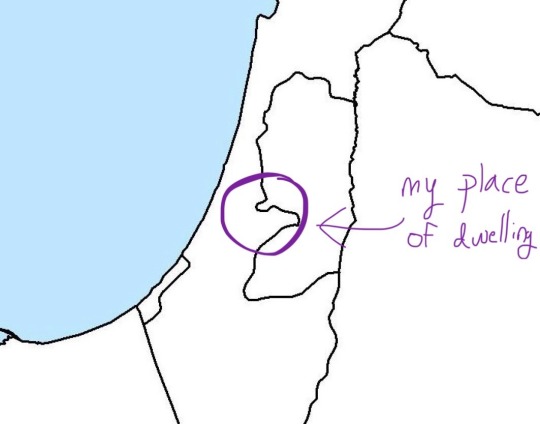
If you know anything about these borders you probably blanched a bit in sympathy, or maybe condolence. But in truth, it’s a shockingly normal existence. I don't feel like I've lived through the shifting of international relations or a war or anything. I just kind of feel like I did when COVID hit, that dull sameness as I wondered if this would be the only world-altering event to shape my life, or if there would be more.
I've been told that, in order for my brain to process all the horrific details of the past six months, there needs to be some element of cognitive dissonance—that falling into a sort of dissociative mindset is the only way to not go insane under the weight of it all. I think in some ways that’s true. I have been terrifyingly close to bus stop shootings when my commute wasn’t over; I have felt my apartment building shake with the reverberations of a missile strike; I have spent hours in underground shelters waiting for air raid sirens to stop.
But. I have also gone grocery shopping, and skipped class, and stayed up too late watching TV, and fed the cats on the street corner, and cried over a boy, and got myself AirPods just because, and taken out the trash, and done laundry on a delicate cycle, and bought overpriced lattes one too many days a week. I have looked at pretty things and taken out my phone because, despite it all, I still think that life is too short not to freeze the small moments.
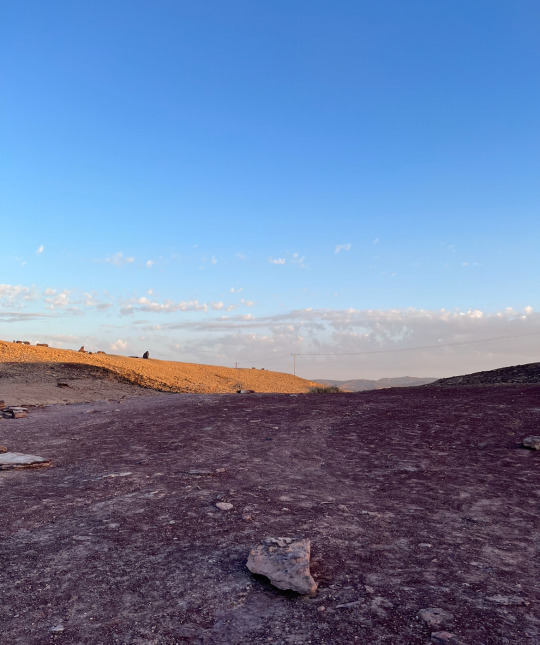
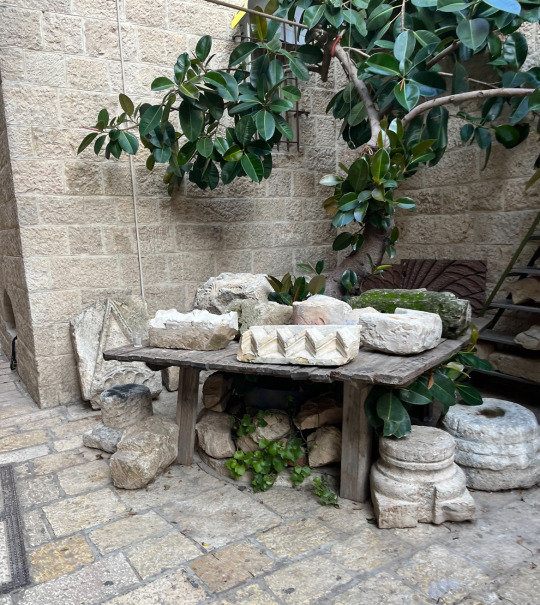
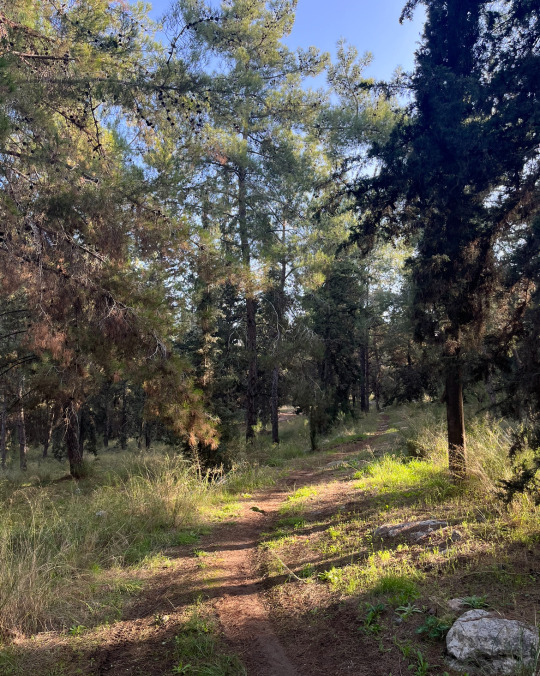
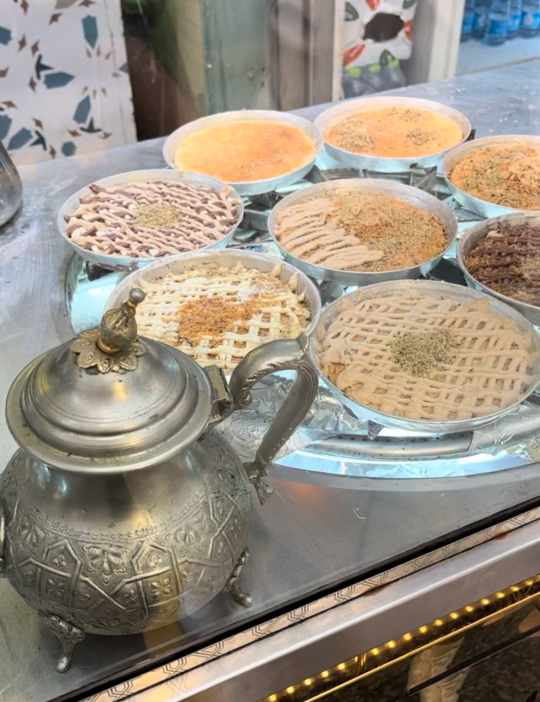
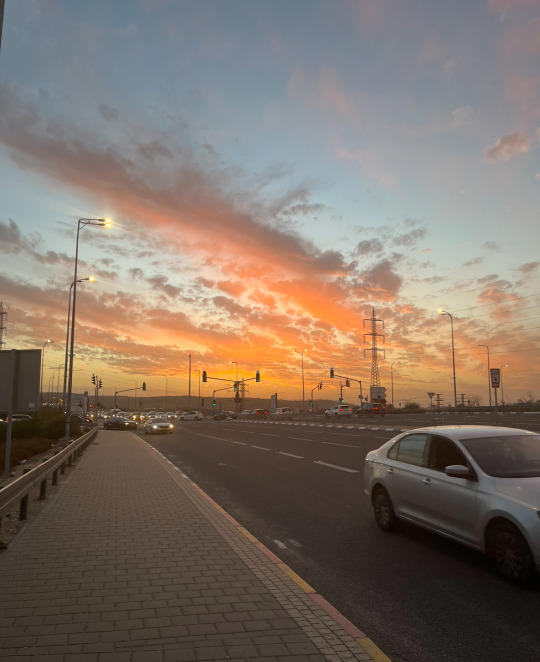
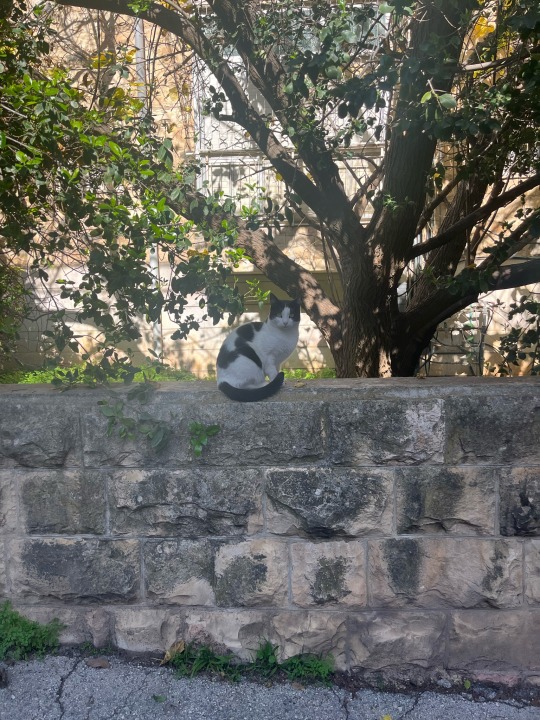
So I'd say, all things considered, I live an incredibly privileged life—compared, of course, to those suffering in Gaza—one filled with sunsets and over-sweetened knafeh and every different color of sand. One that allows me to throw myself into a fandom-induced hyperfixation (or, alternatively, escape method) as I sit on the couch and crack open my laptop to write the next chapter of the fic I'm working on.
But there are bits of not-normalness that wheedle their way through the cracks. I pretend these moments are avoidable, even if they’re not.
They look like this: reading the news and seeing another idiotic, careless choice on Netanyahu’s part and groaning into my morning coffee. Watching Palestinian and Jewish children’s needless suffering posted on Instagram reels and feeling helpless. Opening my Tumblr DMs to find a message telling me to exterminate myself for reblogging a post that only seems like it’s about the war if you squint and tilt your head sideways.
These moments look like all the tiny ways I am reminded that I'm living in a post-October seventh world, where hearing a car backfire makes me jump out of my skin and the sound of a suitcase on pavement makes me look up at the sky and search for the war planes. They look like the heavy grief that is, and also isn’t, mine.
Here's the thing, though. I know you’re wondering when the ball will drop and my true opinion will be revealed. I know you’re waiting for me to reveal what demographic I'm a part of so that you, dear reader, can neatly slap a label on my head and sort me into some oversimplified category that lets you continue to think you understand this war.
No one wants to sit and ruminate on the difficult questions, the ones that make you wonder if maybe you’ve been tinkered with by the propaganda machine, if you might need to go back on what you’ve said or change your mind. We all strive for our perception of complicated issues to be a comfortable one.
But I know that no matter what I do, there will always be assumptions. So, while I shudder to reveal this information online, I think that maybe my most significant contribution to this meta-discussion spanning every facet of the internet is this:
I am a Jew.
Or, alternatively, I am: Jewish, יהודית, يَهُودِيٌّ, etc. Point is, I come from Jews. And, like any given person, I am a product of generation after generation of love.
I'm not going to take time to explain my heritage to you, or to prove that before all the expulsions and pogroms, there was an origin point. If you don’t believe that, perhaps it’s less of a factual problem and more of an ‘I don’t give weight to the beliefs of indigenous people’ problem. But, in case you want to spend time uselessly refuting this tiny point in a larger argument, you can inspect the photos below (it’s just a small chunk of my DNA test results). Alternatively, you can remember that interrogating someone in an attempt to make their indigeneity match your arbitrary criteria is generally not seen as good manners.
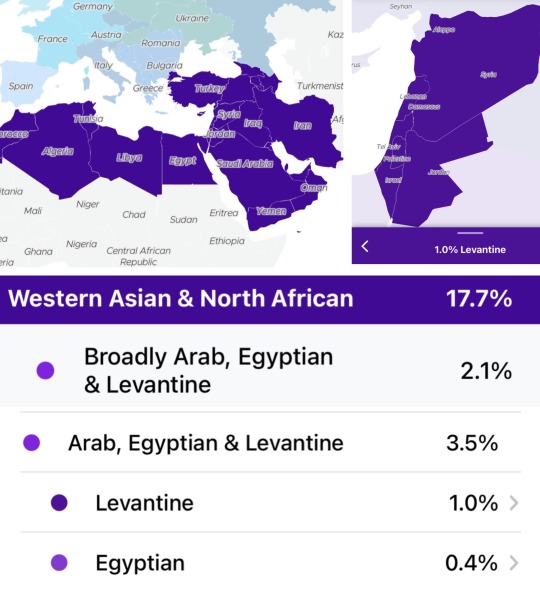
Now, let’s go back to thathateful message (read: poorly disguised death threat) I received in my Tumblr DMs. I think it was like two or three weeks ago. I had recently gained a new follower whose blog’s primary focus was the fandom I contribute to, so I followed them back. I saw in my notes that they were going through my posts and liking them—as one does when gaining a new mutual. Yippee!
Then they sent me this:
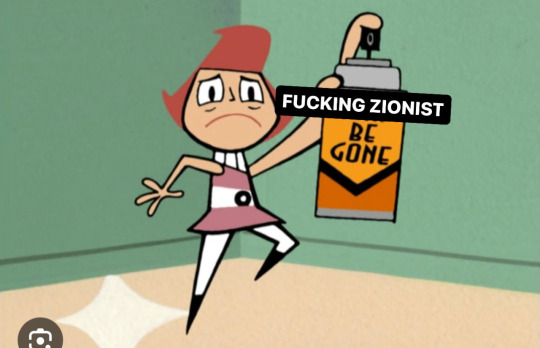
I tried to explain that hate speech is not a way to go about participating in political discourse, but the person had already blocked me immediately after sending that message. Then, assured by the fact that I surely would never see them complaining about me on their blog (because, as I said, they blocked me), they posted a shouting rant accusing me of sympathizing with colonizing settlers and declaring me a “racist Zionist fuck.” Oh, the wonders of incognito tabs.
Where this person drew these conclusions after reading my (reblogged) post about antisemitism…. I'm not actually sure. But I greatly sympathize with them, and hope that they weren’t too personally offended by my desire to not die.
For a while I contemplated this experience in my righteous anger, and tried to figure out a way to message this person. I wanted to explain that a) seeing a post about being Jewish and choosing to harass the creator about Israel is literally the definition of antisemitism and b) that sending a hateful DM and refusing to be held accountable is just childish and immature. But I gave up soon after—because, honestly, I knew it wasn’t worth my effort or energy. And I knew that I wouldn't be able to change their mind.
But I still remember staring at that rather unfortunate meme, accompanied by an all-caps message demanding for me to Free Palestine, and thinking: the post didn’t even have any buzzwords. I remember the swoop of dread and guilt and fear. I remember wondering why this kind of antisemitism felt worse, in that moment, than the kind that leaves bodies in its wake.
I remember thinking, I don’t have the power to free anyone.
I remember thinking, I’m so fucking tired.
And before you tell me that this conflict isn’t about religion—let me ask you some questions. Why is it that Israel is even called Israel? (Here’s why.) Why do Jews even want it? (Here’s why.) But also, if you actually read the charters of Islamist terrorist organizations like ISIS, Hamas, and Hezbollah (among others), they equate the modern state of Israel with the Jewish people, and they use the two entities interchangeably. So of course this conflict is religious. It’s never been anything but that.
But I do wonder, when faced with those who deny this fact: how do I prove, through an endless slew of what-about-isms and victim blaming, that I too am hurting? How do I show that empathy is dialectical, that I can care deeply for Palestinians and Gazans while also grieving my own people?
There's this thing that humans do, when we’re frustrated about politics and need to howl our opinions about it into the void until we feel better. We find like-minded souls, usually our friends and neighbors, and fret about the state of the world to each other until we’ve gone around in a satisfactory amount of circles. But these conversations never truly accomplish anything. They’re just a substitute, a stand-in catharsis, for what we really wish we could do: find someone who embodies the spirit of every Jew-hating internet troll, every ignorant justifier of terrorism, and scream ourselves hoarse at them until we change their mind.
But, of course, minds cannot be changed when they are determined to live in a state of irrational dislike. In Judaism, this way of thinking has a name: שנאת חינם (sinat hinam), or baseless hatred. It's a parasite with no definite cure, and it makes people bend over backwards to justify things like the massacre on October seventh, simply because the blame always needs to be placed on the Jews.
So when a Jew is faced with this unsolvable problem, there is only one response to be had, only one feeling to be felt: anger. And we are angry. Carrying around rage with nowhere to put it is exhausting. It's like a weight at the base of our neck that pushes down on our spine, bending it until we will inevitably snap under the pressure. I’m still waiting to break, even now.
I wish I could explain to someone who needs to hear it that terrorism against Israelis happens every single day here, and that we are never more than one degree of separation away from the brutal slaughter of a friend, lover, parent, sibling. I wish it would be enough to say that the majority of Israelis (which includes Arab-Israeli citizens who have the exact same rights as Jewish-Israelis) wish for peace every day without ever having seen what it looks like.
I wish I could show the world that Israel was founded as a socialist state, that it was built on communal values and born from a cluster of kibbutzim (small farming communities based on collective responsibility), and that what it is now isn’t what its people stand for.
I wish the world could open their eyes to what we Israelis have seen since the beginning: that Hamas is the enemy, Hamas is the one starving Palestinians and denying them aid, Hamas is the one who keeps rejecting ceasefire terms and denying their citizens basic human rights. Hamas is the governing body of Gaza, not Israel. Hamas is responsible for the wellbeing of the Palestinian people. And Hamas are the ones who are more determined to murder Jews—over and over and over again, in the most animalistic ways possible—than to look inwards and see the suffering they’ve inflicted on their own people. I wish it was easier to see that.
But the wishing, the asking how can people be so blind, is never enough. I can never just say, I promise I don't want war.
When I bear witness to this baseless hatred, I think of the victims of October seventh. I think of the women and girls who were raped and then murdered, forever unable to tell their stories. I think of the hostages, trapped underneath Gaza in dark tunnels, wondering if anyone will come for them. I think of Ori Ansbacher, of Ezra Schwartz, of Eyal, Gilad, and Naftali, of Lucy, Rina, and Maia Dee, of the Paley boys, of Ari Fuld and of Nachshon Wachsman. I think of all the innocent blood spilled because of terror-fueled hatred and the virus of antisemitism. I think of all the thousands of people who were brutally murdered in Israel, Jews and Muslims and Christians and humans, who will never see peace.
My ties to this land are knotted a thousand times over. Even when I leave, a part of me is left behind, waiting for me to claim it when I return. But when I see the grit it takes to live through this pain, when I see the suffering that paints the world the color of blood, I look to the heavens and I wonder why.
I ask God: is it worth all this? He doesn't answer. So I am the one, in the end, to answer my own question. I say, it has to be.
Feel free to send any genuine, respectful, and clarifying questions you may have to my inbox!
EDIT: just coming on here to say that I'm really touched & grateful for the love on this post. When I wrote it, I felt hopeless; I logged off of Tumblr for Shabbat, dreading the moment I would turn off my phone to find more hate in my inbox. Granted, I did find some, and responding to it was exhausting, but it wasn’t all hate. I read every kind reblog and comment, and the love was so much louder. Thank you, thank you, thank you. 🤍
Source Reading
The Whispered in Gaza Project by The Center for Peace Communications
Why Jews Cannot Stop Shaking Right Now by Dara Horn
Hamas Kidnapped My Father for Refusing to Be Their Puppet by Ala Mohammed Mushtaha
I Hope Someone Somewhere Is Being Kind to My Boy by Rachel Goldberg
The Struggle for Black Freedom Has Nothing to Do with Israel by Coleman Hughes
Israel Can Defend Itself and Uphold Its Values by The New York Times Editorial Board
There Is a Jewish Hope for Palestinian Liberation. It Must Survive by Peter Beinart
The Long Wait of the Hostages’ Families by Ruth Margalit
“By Any Means Necessary”: Hamas, Iran, and the Left by Armin Navabi
When People Tell You Who They Are, Believe Them by Bari Weiss
Hunger in Gaza: Blame Hamas, Not Israel by Yvette Miller
Benjamin Netanyahu Is Israel’s Worst Prime Minister Ever by Anshel Pfeffer
What Palestinians Really Think of Hamas by Amaney A. Jamal and Michael Robbins
The Decolonization Narrative Is Dangerous and False by Simon Sebag Montefiore
Understanding Hamas’s Genocidal Ideology by Bruce Hoffman
The Wisdom of Hamas by Matti Friedman
How the UN Discriminates Against Israel by Dina Rovner
This Muslim Israeli Woman Is the Future of the Middle East by The Free Press
Why Are Feminists Silent on Rape and Murder? by Bari Weiss
#palestine#israel hamas war#israel hamas conflict#hamas#on war#essay writing#personal essay#rant post#stop terrorism#israel#writing#palestinian lives matter#jewish lives matter#jewish and proud#jewish identity#jewish muslim solidarity#on grief#on religion#antisemitism#anti zionisim#purim 2024#chag purim sameach#judaism#israeli palestinian conflict#am yisrael chai#kvetching#jumblr#mims on middle east#המצב
545 notes
·
View notes
Text
Today, during an anti-Israel rally in Calgary, a protester was seen giving a Nazi salute while holding an image of the Iranian “supreme leader” Ayatollah Ali Khamenei.
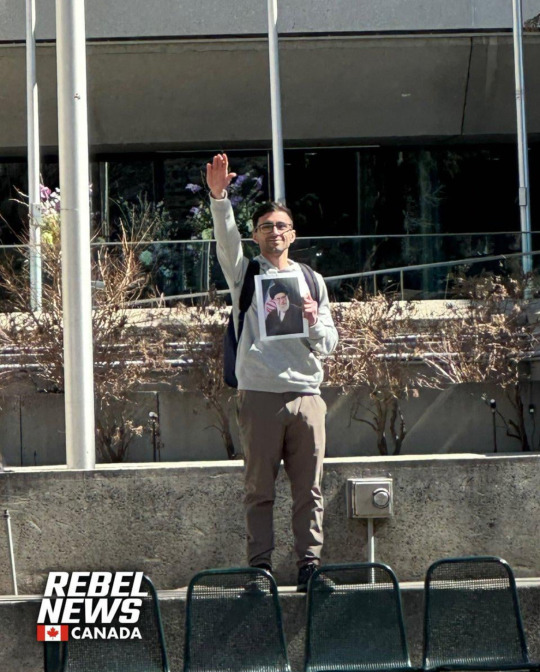
Surely this man is just “antizionist” and not at all doing it because he hates Jews.
#free Iran#i stand with israel#israel#jumblr#palestinian hypocrisy#hamas is isis#antisemitism#Iran#free iran from the islamic republic#down with Islamic terrorism#islam is not a religion of peace
60 notes
·
View notes
Text
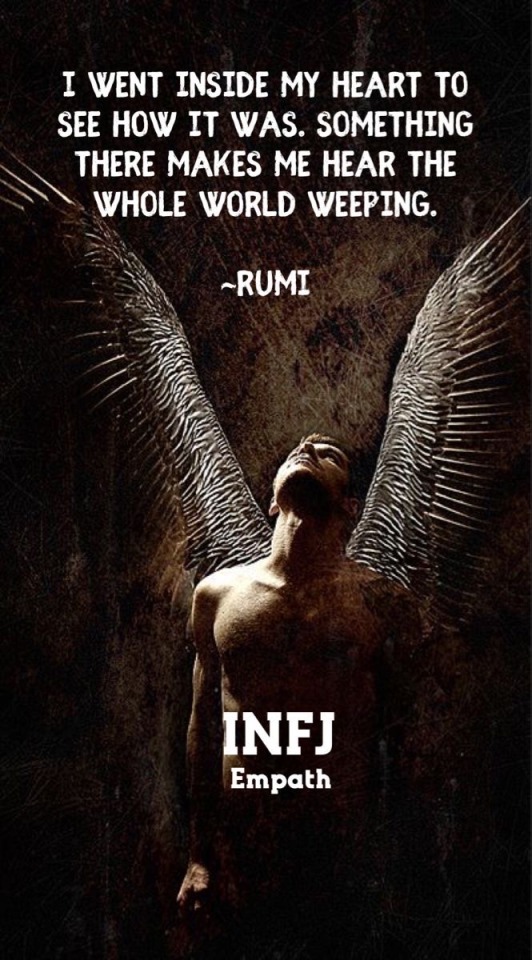
The curse of an empath. We hear the screams of mothers, we feel the terror of the children, the feel pain of the fathers. So many tears. We hear the world weeping. It’s unbearable. There is no excuse, no reason to justify the indiscriminate and purposeful murder of children. Those who do are not human but are monsters.
#poets on tumblr#romantic writer#love#onurtaskiran poetry#rumi#rumi quotes#peace and love#peace in the world#stop the hate#no to terrorism#save the children#protect the children#imagine no religion#poetrybyonur#spilled ink#writers on tumblr#stop the hatred#live in peace#empath#infj
144 notes
·
View notes
Text
just realized that ramadan is in like, a month. ramadan is supposed to be a month of joy for muslims, because its the holiest month (its believed that the devil is jailed away during this time, so its also a time to increase your good deeds) and you gather as a family and a community. thinking of the palestinian muslims in gaza who are barely surviving. the many muslims in the west bank who are terrorized EVERY ramadan, every year, are attacked during their prayers in the al-aqsa mosque, are targeted this month because the point of the idf is to never give palestinians joy. may we, at the absolute minimum, have a permanent ceasefire before the holy month starts.
#israel takes particular joy in terrorizing palestinians during ramadan and eid btw#like every year i hear of them attacking and beating muslims in the al aqsa masjid who r trying to do their nightly prayer#<- a particularly special prayer you do during ramadan#but... yeah. what more is there to say beyond what has already been cried out to the world.#from the river to the sea#the heart bleeds thinking of palestinians who r denied the beautiful land they grew up in and have spiritual ties with#something about jerusalem being holy ground to all the abrahamic religions and yet the amount of blood that's been spilled on that soil.#yeah much to think about
29 notes
·
View notes
Text
Trigun Bookclub: Some Very Long-Winded Final Thoughts (for now)
So what's my takeaway after all this discussion about the allusions to religious concepts and narratives in Trigun? What conclusions does the story draw about faith? And are there any theological ramifications to its message?
From my perspective, the belief system Trigun promotes is a broadly defined humanism that isn't bound by any religious tradition. Declarations of faith in this story are more often directed at individual people or humanity as a whole than toward a god or metaphysical concept. Trigun says that the purest and most fundamental faith is our belief in one another and in our collective capacity for good, and the specifics of any one person's faith are worth pursuing so long as it keeps them in the business of living and engaging compassionately with other sentient beings.

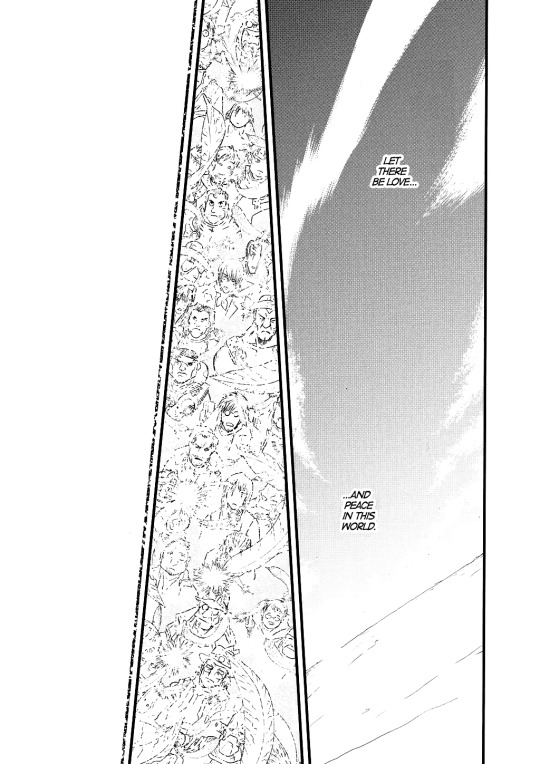
In Trigun's larger thesis on faith, there's also a notable emphasis on the drive for continued life and hope for a future that can be built in the present world as opposed to glorifying death in the service of grandiose ideals, especially if those ideals center on seeing the world as irredeemable and in need of destruction. And it's through this message of continued striving in the here and now that I think Trigun brings up its own point of contention against a particular theological perspective. What we have in Trigun is a firm rejection of apocalypticism.
According to the Critical Dictionary of Apocalyptic and Millenarian Movements, apocalypticism is the "belief in the impending or possible destruction of the world itself or physical global catastrophe, and/or the destruction or radical transformation of the existing social, political, or religious order of human society—often referred to as the apocalypse." In Christianity, this perspective is clearly seen in futurist interpretations of the book of Revelation (the Greek root word for apocalypse - apokalypsis, means revelation or unveiling). This eschatological approach treats the text as a prophetic outline of the end of the world in which God brings judgment through a series of cataclysms and then secures an everlasting paradise for the faithful.
Revelation 21:1-4 (NRSV):
(1) Then I saw a new heaven and a new earth; for the first heaven and the first earth had passed away, and the sea was no more. (2) And I saw the holy city, the new Jerusalem, coming down out of heaven from God, prepared as a bride adorned for her husband. (3) And I heard a loud voice from the throne saying, "See, the home of God is among mortals. He will dwell with them: they will be his peoples, and God himself will be with them; (4) he will wipe every tear from their eyes. Death will be no more; mourning and crying and pain will be no more, for the first things have passed away."
As we all know, Knives loves to position himself as a bringer of divine judgment in the same vein as the Abrahamic God.

To Knives, humans are a source of evil that have to be purged from his world; salvation for his chosen people (plants - the higher beings) can only come through mass death. The realization of Knives' apocalypse is doomsday for humankind. No surprise then that in his followers (some of whom revere him like a deity), we see the sentiments of a doomsday cult. To Legato, service to the supreme being is his sole purpose in life; if Knives commands him to die, then he'll die gladly. For Elendira, the most glorious service to the supreme being is to facilitate his vision for the end of the world, and she wants nothing more than to see it happen. And in Chapel, we see the cruelty and cynicism promoted by the apocalyptic mindset: If the end is inevitable, then all efforts to protect what we have in this world are futile, so what value is there in choosing to be merciful?


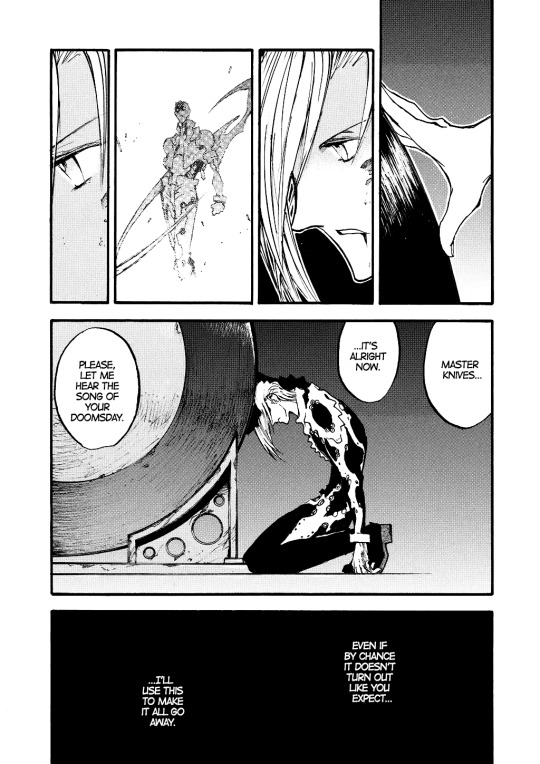
The immense harm dealt by real religious groups that hold similar beliefs to these is difficult to overstate. So long as any atrocity in the temporal world can be justified when committed in deference to what are taught to be higher spiritual principles, there are no ethical boundaries these groups won't transgress. Japanese society in recent history has, in fact, had significant experiences with violent apocalyptic fanaticism. The most well-known of these occurred on March 20, 1995, in which the doomsday cult Aum Shinrikyo carried out its deadly sarin gas attack in the Tokyo Metro subway system. An act of religious terrorism left many dead and thousands injured, all because some people were convinced the world was ending, and it was to their benefit and everyone else's benefit if they could make it end faster.
The doctrine of Aum Shinrikyo was a mishmash of Hindu, Buddhist, and Christian concepts, and Christian eschatological views on Armageddon were especially influential to cult leader Shoko Asahara's prophecies in the time leading up to the attack. Common threads in books of the Christian Bible with apocalyptic elements include emphasis on the corrupting nature of the present world and promises of eternal unity with God after a final war in which Christ emerges victorious against all evil. These ideas are also disconcertingly influential in mainstream American Evangelical Protestant Christianity. Even in the most nonviolent Christians who would never dream of associating with extremists, it's not hard to find an underlying cynicism and detachment with regard to living life in the present. There's the notion that the world is fundamentally broken and sinful, and believers should look forward to God's destruction and remaking of it, because perfect happiness can only come in the thereafter.
1 John 2:15-17 (NRSV):
(15) Do not love the world or the things in the world. The love of the Father is not in those who love the world, (16) for all that is in the world—the desire of the flesh, the desire of the eyes, the pride in riches—comes not from the Father but from the world. (17) And the world and its desire are passing away, but those who do the will of God abide forever.
From such a perspective, hope is primarily oriented toward some indefinite point in the future that will come to pass via the eradication of every imperfection that marks the present. What happens in the story of Trigun, however, is an overturning of the apocalyptic narrative. The climax of Trigun Maximum invokes the fantastical imagery of Revelation, creating the impression of a stage set for the definitive final battle between the embodiments of good and evil, but then the story pushes back against the narrative conventions of apocalypticism. There is no end of days, no destruction and re-creation of the world, because it was averted by radical human hope for compassionate understanding in the here and now. And there is no ultimate triumph of Good over Evil in which Satan is cast into the lake of fire. In fact, there may not even be a "Satan" in this story at all.
When Knives collects his sisters into an amalgamated body, his form and theirs take on a draconic appearance, bringing to mind the red dragon of Revelation (that is, Satan). In Knives' own mind, however, he's God pouring out his divine wrath on the humans who've sinned against him, and there are angelic elements to his design as well to reflect this. Ultimately, his form doesn't hold. Vash and his human allies manage a breakthrough in communicating with the collective body of dependent plants, and when Knives is cast to the earth (in another departure from Revelation, this doesn't occur as the outcome of heavenly forces battling against him), he faces Vash one last time as just a man - Vash's brother who's lashing out because he never processed his extreme childhood trauma. Because maybe in the end these forces of absolute good and absolute evil don't exist; maybe our willingness to imagine God and the Devil was always the product of our own messy, conflicted humanity in all its potential for good and evil.
The resolution, then, happens not through one brother killing the other, but through connection and understanding, a little push toward a kinder existence for everyone. Knives ends up having to place his trust in the very humans he hated in order to save his brother's life, and his faith is rewarded. For Vash and the rest of humanity, life goes on; it goes on in an imperfect present, but it's a present where there's plenty of joy to be found nonetheless. So the story closes out under a bright blue sky with the assurance that the song of humanity still sang. There's no looming threat of doomsday, just a path forward toward more life.
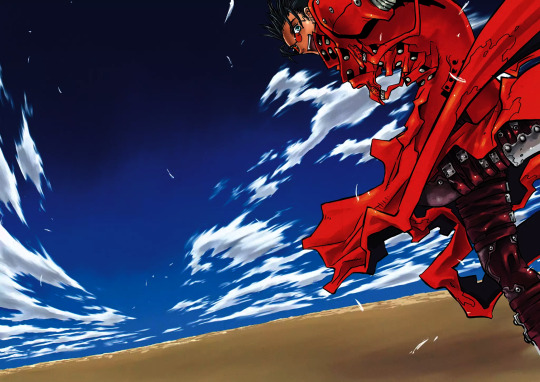
#trigunbookclub#trigun#trigun maximum#ow my brain I need a break from writing#trigun meta#Guns&God meta#religion mention#christianity mention#cults cw#terrorism cw#long post
55 notes
·
View notes
Text
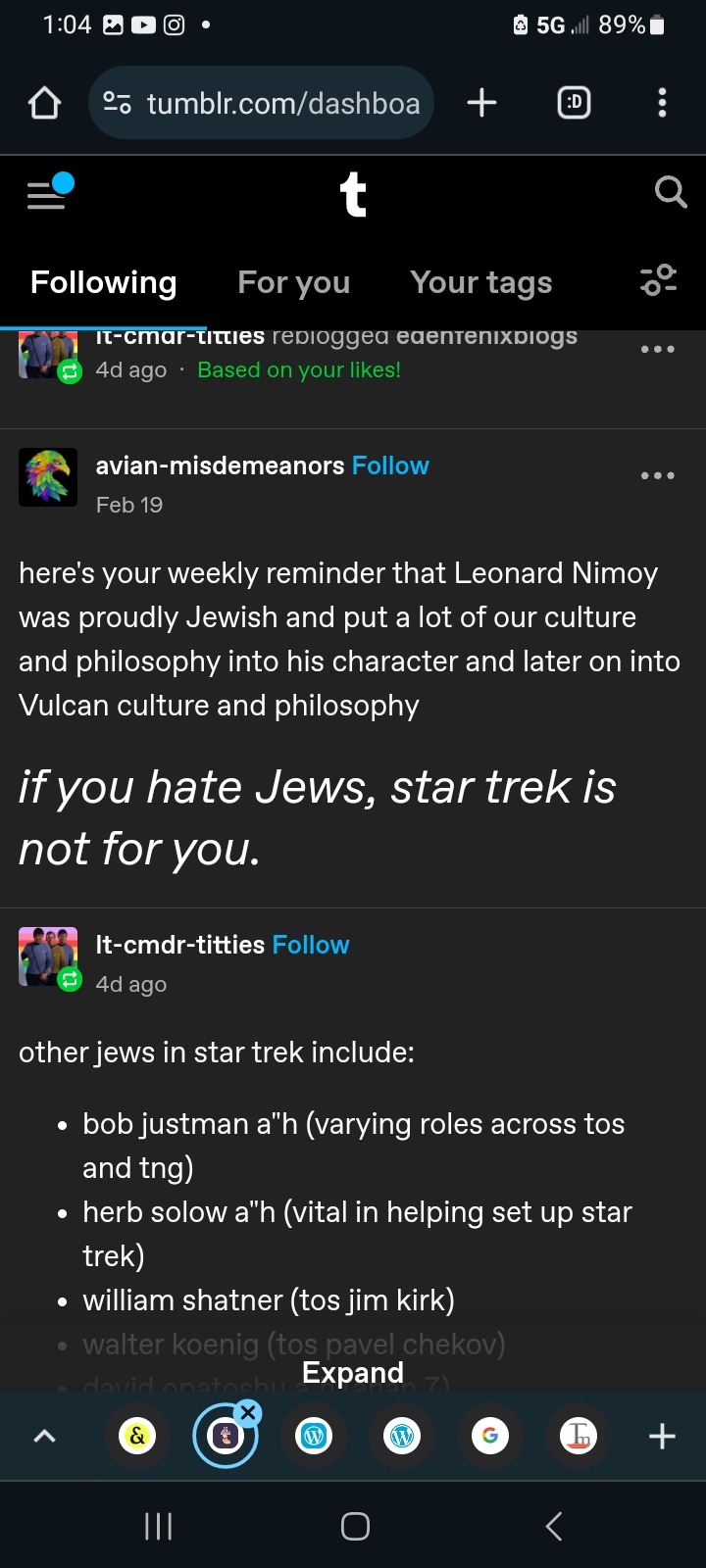
Hm. I have dealt with antisemitic star trek fans, but given the times we live in and the recency of this post, as well as me not hearing of any recent major events about antisemitism in Trek fandom, let me check OPs blog real quick

Ah.
Anyway- DS9 intentionally paralleled the Occupation of Bajor with both the Holocaust and the Nakba, among other things, and one of the cast members who remarked on the similarity of Bajorans to Palestinians was Armin Shimerman, who is himself Jewish.
#cipher talk#Star Trek has an ambivalent relationship to Judaism imo honestly#It is true that Nimoy put a lot of Judaism into Spock#But uh. The Ferengi. Who are not only coded in ways that relate to Jews but also Chinese people and Muslims#Even with the complexity added to the Ferengi- notably by Shimerman and other DS9 cast members- its still an ambivalent depiction#Like. A lot of the complexity was added by individual Ferengi being at odds with their culture and accepting Federation ideas#Which I think speaks to how a lot of the Jewish writers and actors on DS9 aren't religious and how secular American Jews#Often regard religious American Jews- especially Orthodox Jews. Which I've already said I feel impacted how Kai Winn was portrayed#(Specifically the choice to associate the word 'Orthodox' with terrorism and assassination)#and how an ambivalent view of religion- sometimes leaning negative- also furthers this view of Judaism
23 notes
·
View notes
Text
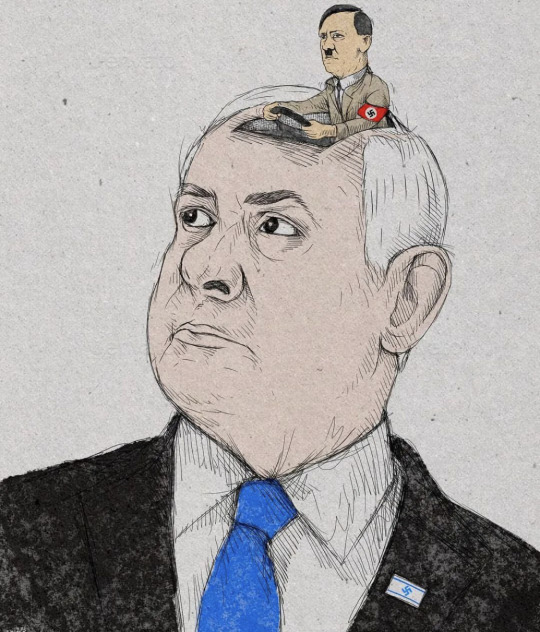
Israel is the new Nazis
#israel is the new nazis#free palestine#palestine#gaza#justice for palestine#gaza strip#free gaza#occupied palestine#israel massacre#israel#politics#jewsforpalestine#jews for palestine#jews#religion#jews for ceasefire#nazisti#zionsim is terrorism#fuck netanyahu
22 notes
·
View notes
Text
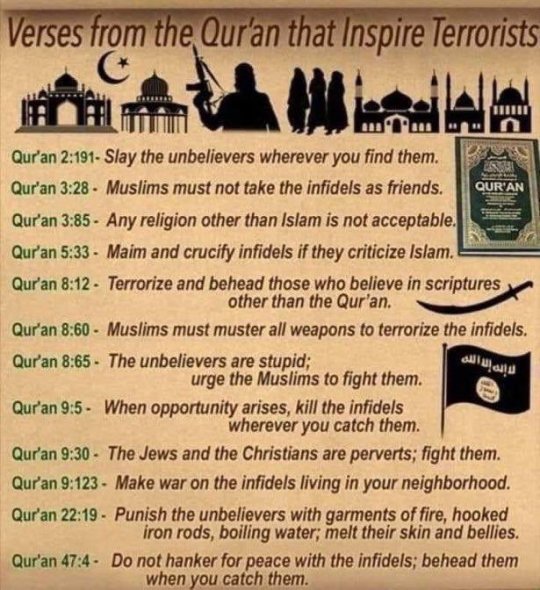
https://quranx.com/2.191
And slay them wherever ye find them, and drive them out of the places whence they drove you out, for persecution is worse than slaughter. And fight not with them at the Inviolable Place of Worship until they first attack you there, but if they attack you (there) then slay them. Such is the reward of disbelievers.
https://quranx.com/3.28
Let not the believers take disbelievers for their friends in preference to believers. Whoso doeth that hath no connection with Allah unless (it be) that ye but guard yourselves against them, taking (as it were) security. Allah biddeth you beware (only) of Himself. Unto Allah is the journeying.
https://quranx.com/3.85
And whoso seeketh as religion other than the Surrender (to Allah) it will not be accepted from him, and he will be a loser in the Hereafter.
https://quranx.com/5.33
The only reward of those who make war upon Allah and His messenger and strive after corruption in the land will be that they will be killed or crucified, or have their hands and feet on alternate sides cut off, or will be expelled out of the land. Such will be their degradation in the world, and in the Hereafter theirs will be an awful doom;
https://quranx.com/8.12
When thy Lord inspired the angels, (saying): I am with you. So make those who believe stand firm. I will throw fear into the hearts of those who disbelieve. Then smite the necks and smite of them each finger.
https://quranx.com/8.60
Make ready for them all thou canst of (armed) force and of horses tethered, that thereby ye may dismay the enemy of Allah and your enemy, and others beside them whom ye know not. Allah knoweth them. Whatsoever ye spend in the way of Allah it will be repaid to you in full, and ye will not be wronged.
https://quranx.com/8.65
O Prophet! Exhort the believers to fight. If there be of you twenty steadfast they shall overcome two hundred, and if there be of you a hundred (steadfast) they shall overcome a thousand of those who disbelieve, because they (the disbelievers) are a folk without intelligence.
https://quranx.com/9.5
Then, when the sacred months have passed, slay the idolaters wherever ye find them, and take them (captive), and besiege them, and prepare for them each ambush. But if they repent and establish worship and pay the poor-due, then leave their way free. Lo! Allah is Forgiving, Merciful.
https://quranx.com/9.30
And the Jews say: Ezra is the son of Allah, and the Christians say: The Messiah is the son of Allah. That is their saying with their mouths. They imitate the saying of those who disbelieved of old. Allah (Himself) fighteth against them. How perverse are they!
https://quranx.com/9.123
O ye who believe! Fight those of the disbelievers who are near to you, and let them find harshness in you, and know that Allah is with those who keep their duty (unto Him).
https://quranx.com/22.19-21
These twain (the believers and the disbelievers) are two opponents who contend concerning their Lord. But as for those who disbelieve, garments of fire will be cut out for them; boiling fluid will be poured down on their heads,
Whereby that which is in their bellies, and their skins too, will be melted;
And for them are hooked rods of iron.
https://quranx.com/47.4
Now when ye meet in battle those who disbelieve, then it is smiting of the necks until, when ye have routed them, then making fast of bonds; and afterward either grace or ransom till the war lay down its burdens. That (is the ordinance). And if Allah willed He could have punished them (without you) but (thus it is ordained) that He may try some of you by means of others. And those who are slain in the way of Allah, He rendereth not their actions vain.
So peace.
#islam#this is islam#quran#islamic violence#religion of peace#religion of violence#religion#terrorism#islamic terrorism#religion of terrorism#religion is a mental illness
26 notes
·
View notes
Text
Israel has prevented thousands of Christians from the occupied West Bank from accessing Jerusalem to participate in the celebration of Palm Sunday
#palestine#palestinians#gaza#genocide#childrens holocaust#israeli apartheid#israeli occupation#right wing extremism#idf terrorists#iof terrorism#free palestine#free gaza#jerusalem#palm sunday#easter#christians#holy land#war crimes#justice#netanyahu the madman#anti christianity#illegal occupation#illegal settlements#civilian deaths#arbitrary#freedom of religion#rights and freedoms#vatican#italy
25 notes
·
View notes
Text
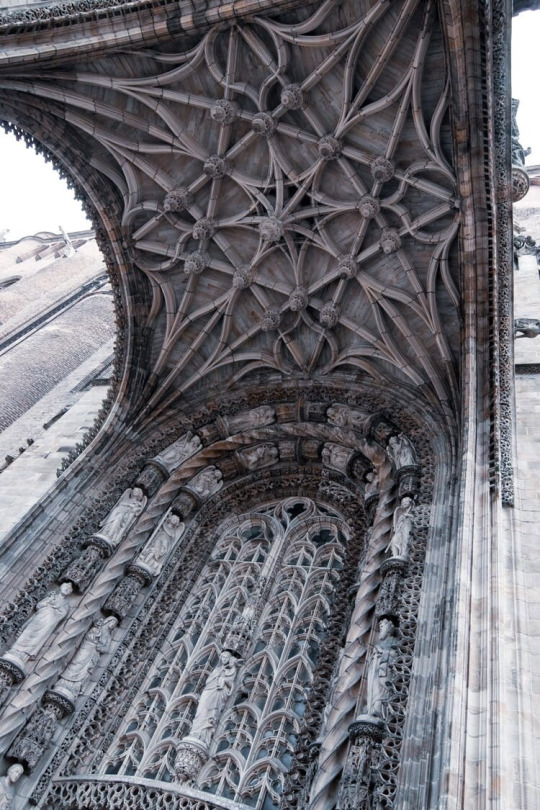
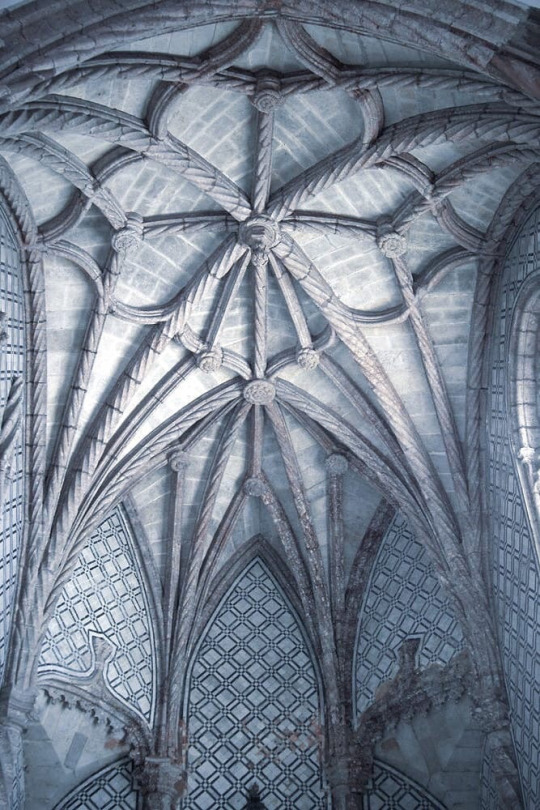



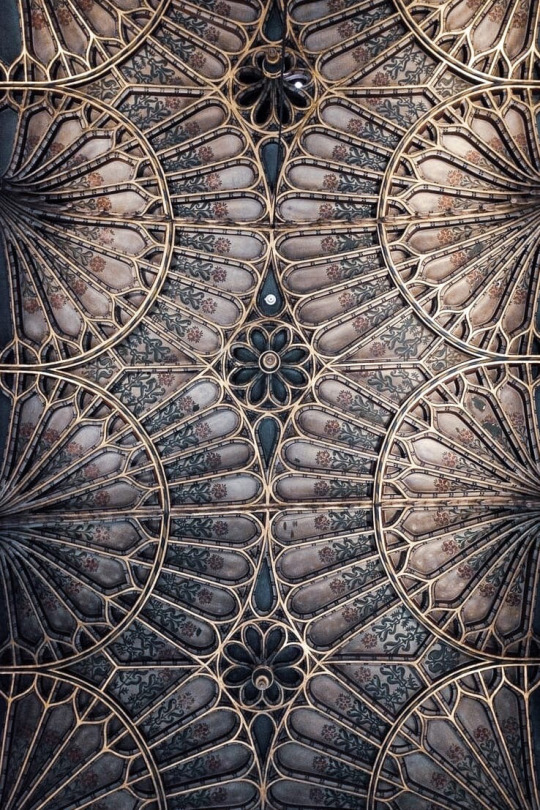

Religion is a Mental Illness ✔️
Lace of Gothic Vaults 🖤
#Travelingwithoutmoving 🧳🧭
#architecture #architecturephotography #architecturelovers #architectureporn #architecturedesign #architecturelover #architecturephoto #architecturedaily #architecture_hunter #architecturedetail #architecturephotos #architecturedose #architectureanddesign #architecturelife #architecturegram #architecturelove #architecturephotograpy #architectures #architectureinspiration #architecture_view #architektur #architekturfotografie #architekturfotograf #architektur_erleben #architekturliebe #architekturporn #architekturelovers #history #historyofart #historycal #historyfacts #historylovers #historyinpictures #historymade #historygeek #historyera #historyphoto #historyclass #historychannel #historylesson #historygram #historynerd #historytour #historyofphotography #historyplace #historylover #historyphotographed #historymatters #historyoffashion #historyiscool #arthistory #historical #historicalplaces #historicalpix #historicalclothing #historicalphotos #historicalromance #historicalmonument #historicalfacts #historicalart #historicalsnapshots #historicalphotography #historicalphoto #historicalpictures #historicalhome #historicalcenter #historicaldesign #historicalfantasy #historicalusociety
St. Leonard by Die Selektion 🎧

#fucking favorite#vaults#Gothic#gothic aesthetic#gothic architecture#gothic art#4/2024#history#historical#nostalgia#goth#goth aesthetic#traveling#architektur#architecture#x-heesy#music and art#church#churches#cathedral#religion#christianity#insanity#catholic#terror
17 notes
·
View notes
Text
"The fact that muslim terrorist groups exist is not Islams' fault! There are peaceful muslim people you know!"
Would you also say that we can't blame Christianity for the forms of oppression such as:
Crusades
Colonisation/Mission trips
Witch trials
Heresy trials
Because not all Christians participated in these and not all of them supported it?
Or do you only excuse religions that it's currently trendy to support?
#radfem#radical feminism#radfem safe#radblr#radfems do interact#feminism#radfems do touch#religion#anti religion#anti islam#anti hamas#anti hijab#anti christianity#religious extremism#terrorism#hamas#is#isis#islam#muslim#mine
52 notes
·
View notes
Text
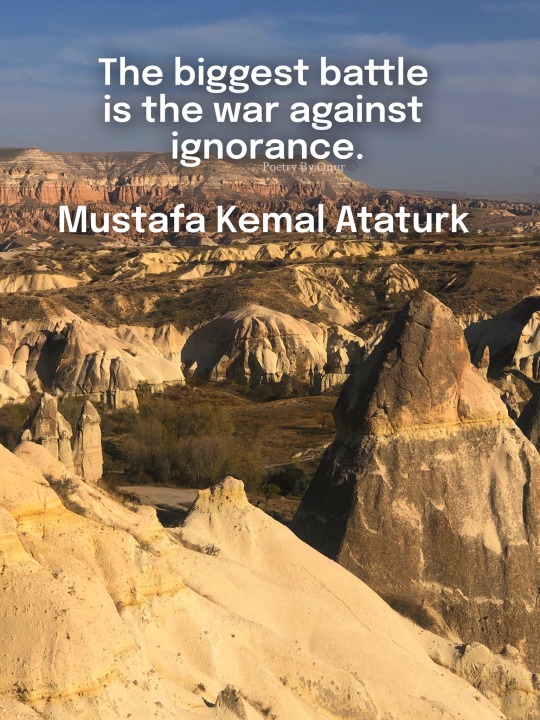
A quote from the past that rings true more than ever now. I support my friends in Israel. (Photo taken by me in Cappadocia, Türkiye.)
#poets on tumblr#onurtaskiran poetry#poetrybyonur#poets and writers#gentleman poet#love#peace#mustafa kemal atatürk#cappadocia#ignorance#i support israel#no to terrorism#teachers#education#educate yourself#study history#love is my religion
23 notes
·
View notes
Text
girl who has a romencken playlist that consists of 50% religious songs
#idk what it is abt them like#theyre honestly kinda loustat coded#the god/devil image of one of them#and the devotion the other has for them#the inherent terror that comes with thst devotion#like if ur love isnt me and the devil hell and you you want it darker glory kiss me son of god not strong enough big god the killing moon#and ethel cain is it really worth it#smth abt finding religion in one another#or more specifically too finding a god AND devil-like figure in someone and devoting urself to them#its very sexy like what can i say#“to fall in love is to create a religion that has an fallible god”#“love for you is larger than usual romantic love. its like a religion. its terrifying. no one will ever want to sleep with you”#roman roy#jeryd mencken#romencken#roman x mencken#succession
44 notes
·
View notes
Text
Russian culture is ethnic cleansing and islamophobia
Dear world, don't forget about Crimean Tatars who are living through persecution by Russians. They're "celebrating" Ramadan in jails, in captivity. Just because Crimean Tatars never forget their roots, their religion, their language, their identity. Only their ethnicity causes awful and disrespectful attitudes from Russians. Russians have their meaning to "holy" which represents with glorifying of war by their churches. What in a utopian world does Russia live in?
When in Ukraine you barely see those hateful slurs, comments, or disrespect to people who are different from others.
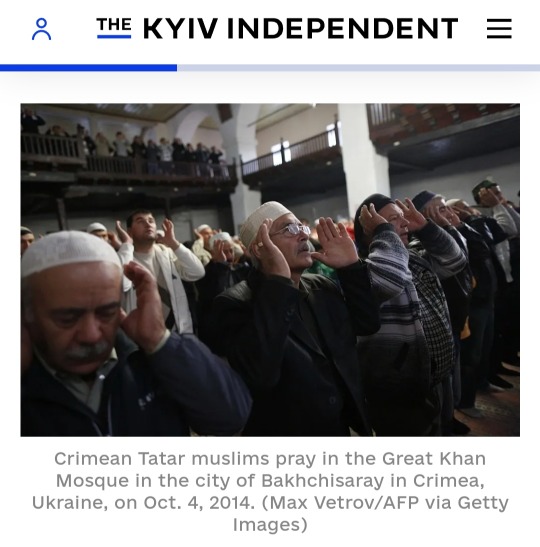
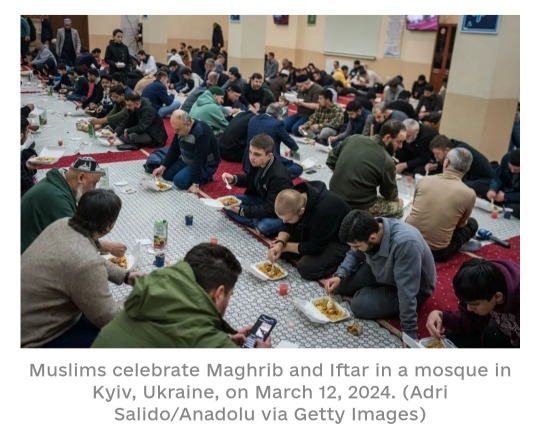
For Russians even Ukrainian types of Christianity are reason to torture people. We search for freedom which to Russians are huge red flag.
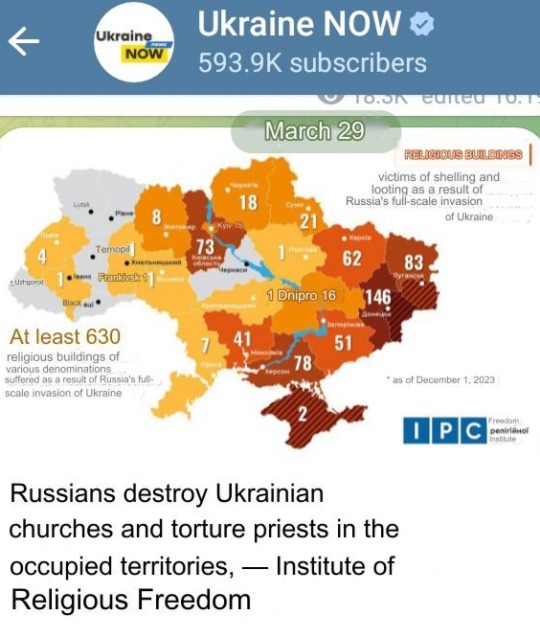
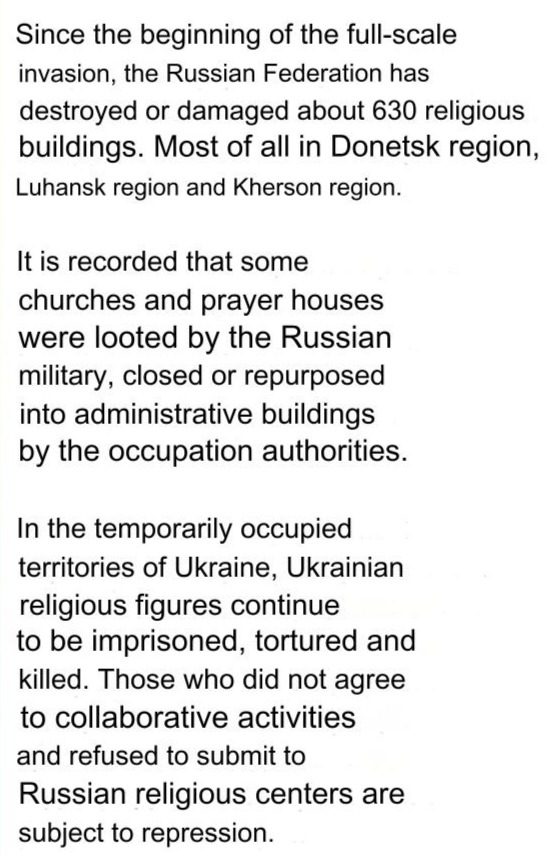
Please keep spreading our voices and donate to our army and combat medics (savelife.in.ua, prytulafoundation.org, Serhii Sternenko, hospitallers.life, ptahy.vidchui.org and u24.gov.ua).
#crimea is ukraine#ukraine#crimea#crimean tatars#genocide#stop the genocide#russia is a terrorist state#islam#muslim#religion#russian terrorism#stop russia#russian colonialism#colonial violence#russia#russian invasion of ukraine#russo ukrainian war#український tumblr#stand with ukraine#arm ukraine#important#united nations#united states#text post#text#war crimes#russian war crimes#war in ukraine#war is real#war
8 notes
·
View notes